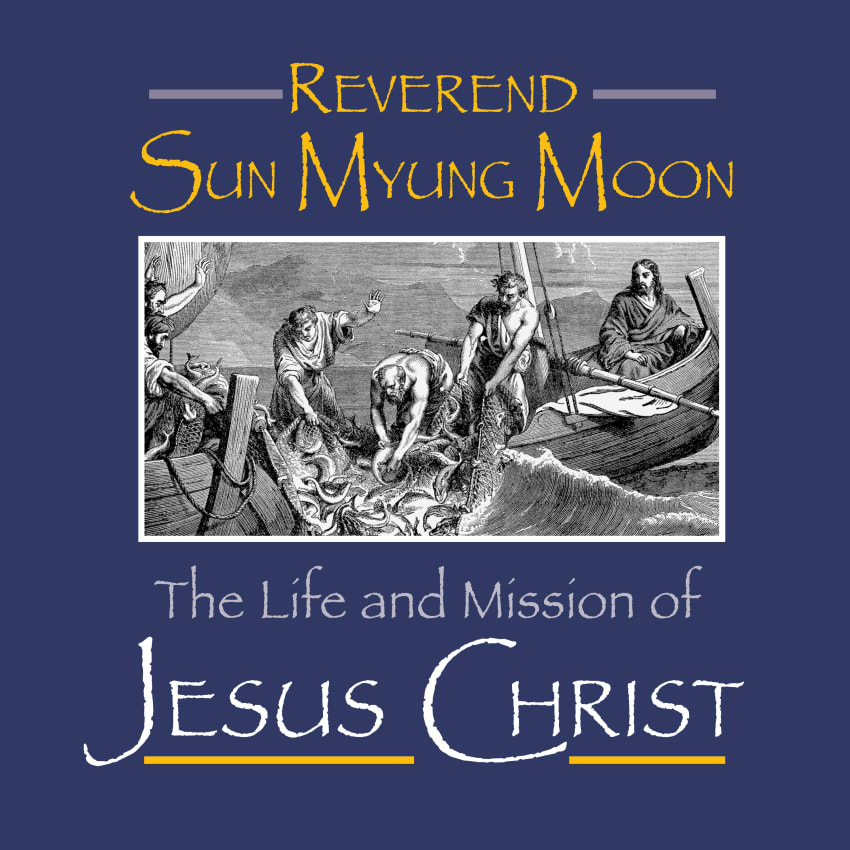The Life and Mission of Jesus Christ: Episode 32
Rev. Sun Myung Moon: The Life and Mission of Jesus Christ
Chapter 4: With The Disciples, Let the Dead Bury the Dead, Page 90-91
Let the Dead Bury the Dead
He said to another man, “Follow me.” But the man replied, “Lord, first let me go and bury my father.” Jesus said to him, “Let the dead bury their own dead, but you go and proclaim the kingdom of God.” (Luke 9:59-60)
Jesus’ teaching was crystal clear on the standard of loving God. When one of his disciples asked him if he could go and assist in the funeral of his father, Jesus told him to stay with his mission and “Let the dead bury the dead.”
Standing in the Presence of God
November 7, 1982
When a follower asked Jesus if he could go home to bury his deceased father, Jesus said, “Leave the dead to bury their own dead.” From these words of Jesus, it is clear that the Bible contains two different concepts of life and death. The first concept of life and death concerns physical life. Here, “death” means the end of physical life, as was the case of the disciple’s deceased father who was to be buried.
The second concept of life and death concerns those living people who had gathered to bury the deceased man, those whom Jesus called “the dead.” Why did Jesus refer to people whose bodies were alive and active as the dead? He meant that since they had not accepted Jesus, they were far removed from the love of God and were dwelling in the realm of Satan’s dominion. This second concept of death does not refer to the expiration of physical life. It means leaving the bosom of God’s love and falling under the dominion of Satan. The corresponding concept of life refers to the state of living in accordance with God’s will, within the dominion of God’s infinite love. Therefore, even if a person’s physical self is alive, if he dwells apart from God’s dominion and is in servitude to Satan, he is dead as judged by the original standard of value. A similar conclusion can be drawn from the Lord’s words of judgment upon the faithless people of the church in Sardis: “You have the name of being alive, and you are dead.” (Rev. 3:1)
On the other hand, even though a person’s physical life may have expired, he remains alive in the true sense if his spirit abides in the kingdom of heaven in heaven, a realm in the spirit world where God governs through love. When Jesus said, “... he who believes in me, though he dies, yet shall he live” (John 11:25), he meant that those who believe in him and live within the realm of God’s dominion have life. Even after their physical bodies have returned to the soil, their spirits enjoy life in God’s dominion. Jesus also said, “... whoever lives and believes in me shall never die.” (John 11:26) In saying that believers will never die, he meant that those who believe in Jesus during their earthly life will obtain eternal life not in this world, but in spirit, within the bosom of God’s love. They will be alive, both in this life and the next. Jesus’ words assure us that death, in the sense of the end of physical life, has no effect on our eternal life.
Exposition of the Divine Principle
Resurrection 1.1
Godible is made possible by listeners like you!
DONATE



 FFWPU, USA
FFWPU, USA